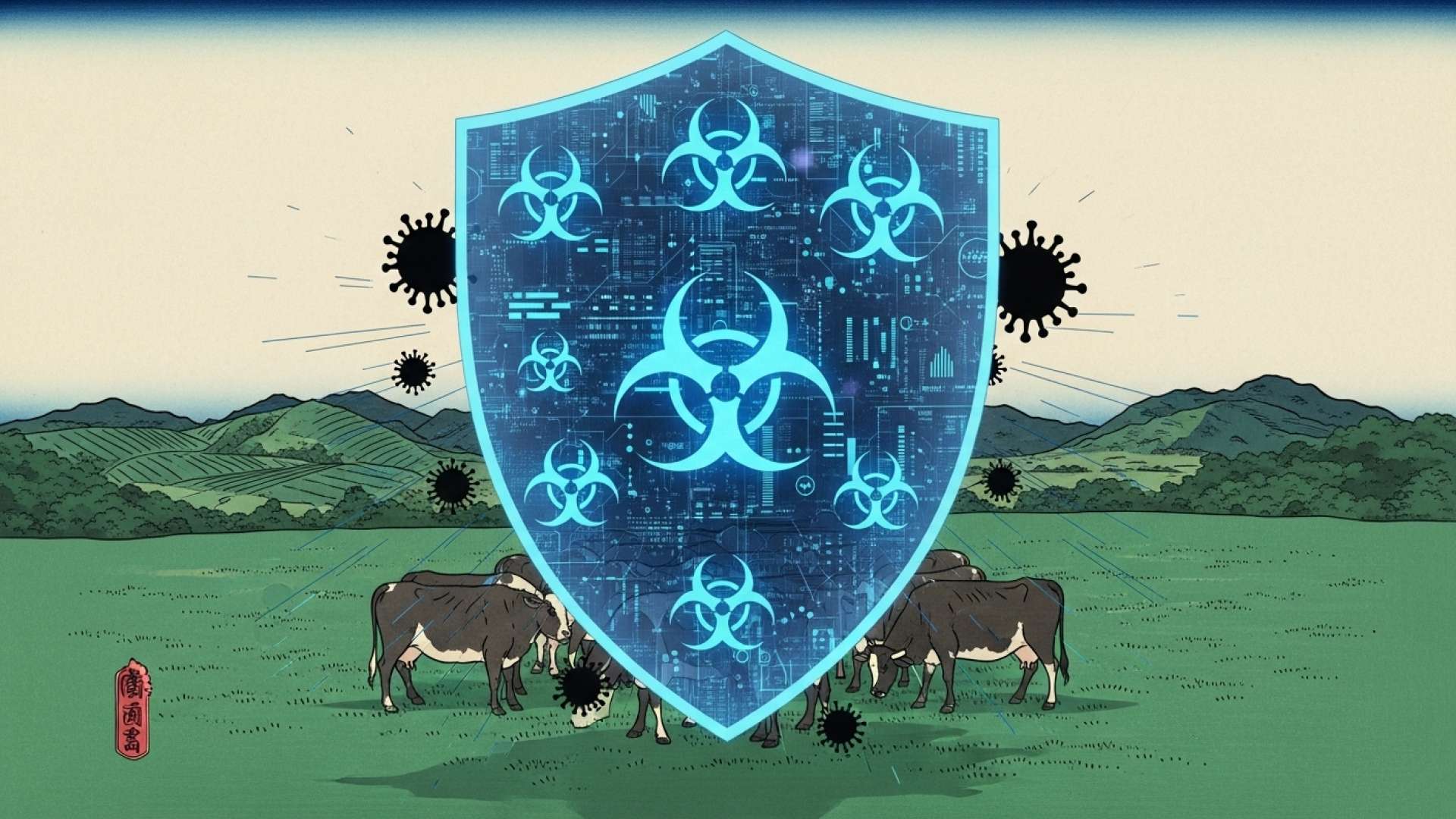Puntarenas, Costa Rica — OSA, Puntarenas – Costa Rican agricultural and health authorities are on high alert following the confirmation of a second case of Bovine Paralytic Rabies this year. The National Animal Health Service (Senasa) and the Ministry of Agriculture and Livestock (MAG) announced the detection of the disease on a farm in Osa, Puntarenas, prompting immediate containment protocols to mitigate the risk to livestock and public health.
This latest incident in the country’s southern zone follows a previous outbreak reported earlier this year in Heredia province. The emergence of a second case in a different region underscores the persistent threat the viral disease poses to the nation’s cattle industry and highlights the critical need for constant vigilance and preventative measures among ranchers.
An outbreak of bovine rabies presents not only a serious animal health challenge but also a complex web of legal and economic responsibilities for cattle ranchers. To clarify the liabilities and duties farm owners face, TicosLand.com consulted with legal expert Lic. Larry Hans Arroyo Vargas from the firm Bufete de Costa Rica.
From a legal standpoint, a bovine rabies case moves beyond a simple agricultural loss; it activates a farm owner’s duty of care. Failure to adhere strictly to SENASA’s mandatory vaccination and reporting protocols can be interpreted as negligence, potentially exposing the owner to civil liability for damages to third-party livestock. Furthermore, insurance claims for lost cattle are often denied if the policyholder cannot prove full compliance with these official sanitary regulations. Meticulous record-keeping is not just good practice—it’s a crucial legal shield.
Lic. Larry Hans Arroyo Vargas, Attorney at Law, Bufete de Costa Rica
Lic. Arroyo Vargas’s analysis powerfully reframes the issue, shifting the focus from a purely veterinary problem to one of profound legal and financial consequence. This insight underscores that meticulous compliance is not merely good practice, but an essential shield against liability. We thank Lic. Larry Hans Arroyo Vargas for so clearly articulating this critical perspective for our readers.
Bovine Rabies is a fatal viral disease that aggressively attacks the central nervous system of warm-blooded animals. Once symptoms appear, the disease is invariably lethal. Infected cattle typically exhibit severe neurological signs, including pronounced discoordination, difficulty walking, excessive salivation, and eventual paralysis of the limbs, which renders the animal unable to stand. The progression of the illness culminates in neck torsion and, ultimately, death.
The threat extends beyond livestock, as rabies is a zoonotic disease, meaning it can be transmitted from animals to humans. This public health dimension has prompted a swift, multi-agency response. Officials are not only focused on containing the spread within the local cattle population but are also taking decisive action to protect any individuals who may have been exposed.
In an official statement, authorities urged livestock owners to adhere strictly to vaccination schedules and report any suspected cases without delay. This proactive approach is considered the most effective strategy for managing the disease in regions where it is considered endemic.
We remind cattle ranchers of the importance of maintaining annual rabies vaccinations, especially in endemic areas like the southern part of the country. Early notification of any animal with nervous symptoms is fundamental to preventing the spread of the disease.
Luis Mariano Arroyo Sánchez, Coordinator of the Cross-Border Diseases Program at Senasa
In response to the confirmed case in Osa, government agencies have implemented stringent sanitary measures. A quarantine has been established around the affected farm, restricting the movement of animals to prevent further transmission. Furthermore, a comprehensive vaccination campaign was immediately launched for all 26 animals located on the property to create a protective barrier against the virus.
The collaborative effort involves close coordination between animal and human health sectors. Senasa and MAG are working directly with the Ministry of Health to identify and vaccinate all individuals who may have come into contact with the infected animal. This protocol is crucial for preventing human cases of rabies, a disease that is preventable with timely post-exposure treatment but is almost always fatal once symptoms develop.
For the agricultural community in Puntarenas and the wider southern region, this outbreak serves as a stark reminder of the economic and operational risks associated with infectious diseases. The financial losses from a single infected animal, coupled with the costs of quarantine and enhanced biosecurity, can be significant. Authorities continue to emphasize that consistent investment in preventative health measures, such as annual vaccinations, is the most cost-effective way to protect herds and livelihoods.
For further information, visit senasa.go.cr
About the National Animal Health Service (Senasa):
The National Animal Health Service (Senasa) is the official government body in Costa Rica responsible for safeguarding the country’s animal health, ensuring food safety for products of animal origin, and facilitating international trade. It develops and enforces regulations, conducts surveillance for diseases like Bovine Rabies, and works closely with producers to promote best practices in animal husbandry and public health.
For further information, visit mag.go.cr
About the Ministry of Agriculture and Livestock (MAG):
The Ministry of Agriculture and Livestock is the Costa Rican government entity tasked with formulating and executing policies for the agricultural sector. Its mission is to promote sustainable development, competitiveness, and equity within the nation’s farming and livestock industries. MAG works to improve the quality of life for rural communities while ensuring a stable and safe food supply for the country.
For further information, visit ministeriodesalud.go.cr
About the Ministry of Health:
The Ministry of Health is the primary authority for public health in Costa Rica. It is responsible for steering national health policy, regulating health services, and implementing programs for disease prevention and health promotion. The ministry’s role is critical in managing zoonotic disease outbreaks, coordinating responses to protect the human population from threats originating in animal populations.
For further information, visit bufetedecostarica.com
About Bufete de Costa Rica:
Bufete de Costa Rica is a pillar of the legal community, built upon a foundation of profound integrity and a relentless pursuit of excellence. With deep experience advising a wide range of clients, the firm is also a vanguard of legal innovation, continuously advancing the practice of law. This forward-thinking approach is matched by a deep-seated commitment to social responsibility, focused on demystifying legal complexities and empowering the public with crucial knowledge to foster a more just and informed society.









